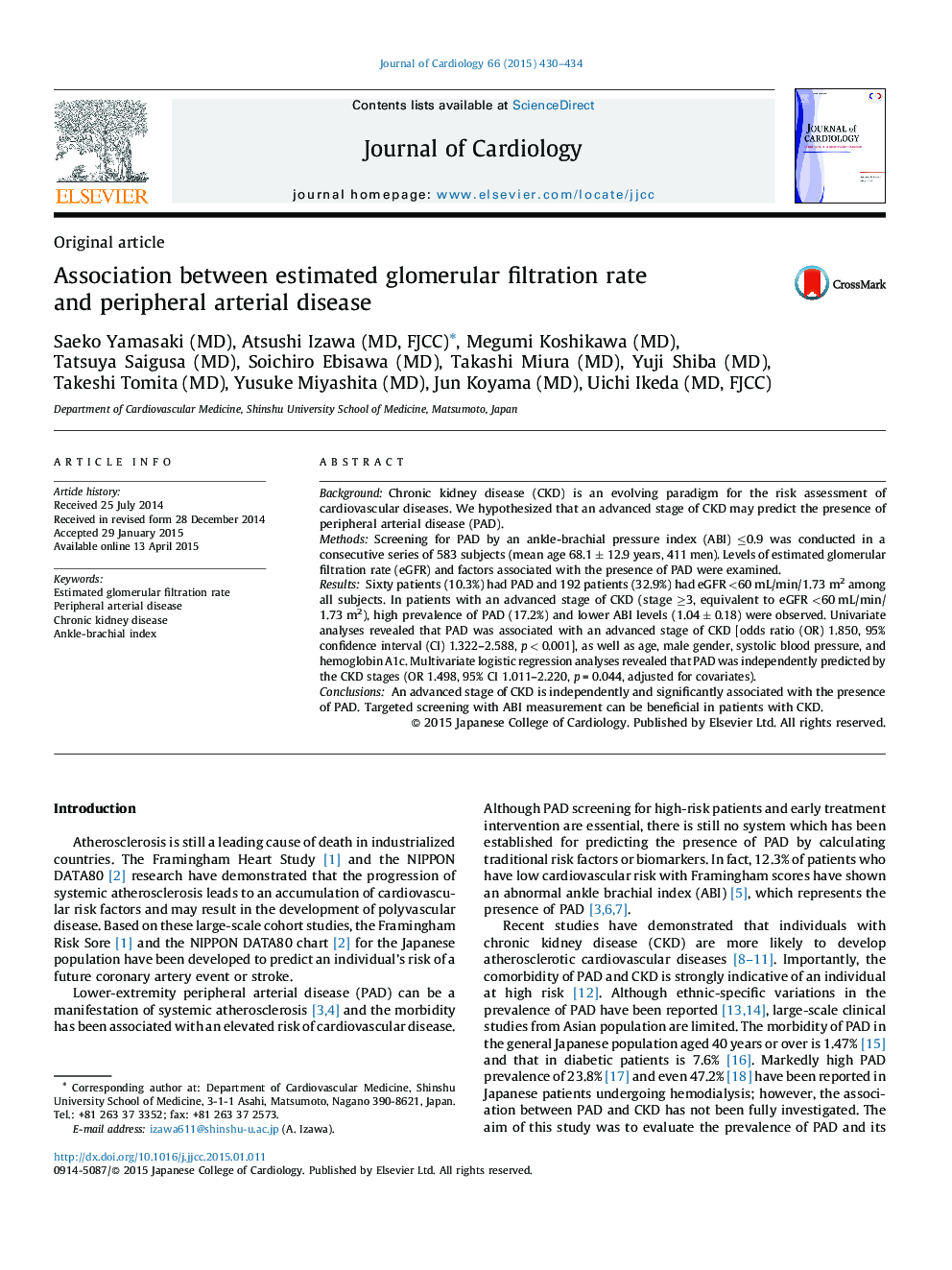| Article ID | Journal | Published Year | Pages | File Type |
|---|---|---|---|---|
| 2962792 | Journal of Cardiology | 2015 | 5 Pages |
BackgroundChronic kidney disease (CKD) is an evolving paradigm for the risk assessment of cardiovascular diseases. We hypothesized that an advanced stage of CKD may predict the presence of peripheral arterial disease (PAD).MethodsScreening for PAD by an ankle-brachial pressure index (ABI) ≤0.9 was conducted in a consecutive series of 583 subjects (mean age 68.1 ± 12.9 years, 411 men). Levels of estimated glomerular filtration rate (eGFR) and factors associated with the presence of PAD were examined.ResultsSixty patients (10.3%) had PAD and 192 patients (32.9%) had eGFR <60 mL/min/1.73 m2 among all subjects. In patients with an advanced stage of CKD (stage ≥3, equivalent to eGFR <60 mL/min/1.73 m2), high prevalence of PAD (17.2%) and lower ABI levels (1.04 ± 0.18) were observed. Univariate analyses revealed that PAD was associated with an advanced stage of CKD [odds ratio (OR) 1.850, 95% confidence interval (CI) 1.322–2.588, p < 0.001], as well as age, male gender, systolic blood pressure, and hemoglobin A1c. Multivariate logistic regression analyses revealed that PAD was independently predicted by the CKD stages (OR 1.498, 95% CI 1.011–2.220, p = 0.044, adjusted for covariates).ConclusionsAn advanced stage of CKD is independently and significantly associated with the presence of PAD. Targeted screening with ABI measurement can be beneficial in patients with CKD.
